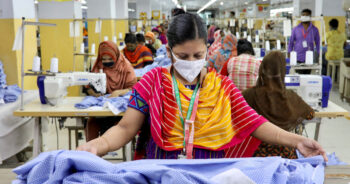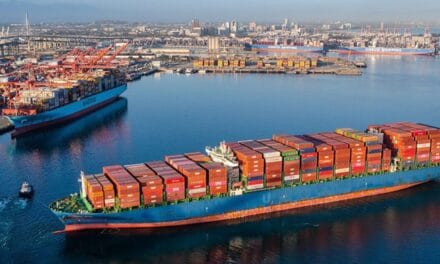 Bangladesh Garment Manufacturers and Exporters Association (BGMEA) have requested that the 7.5% and 15% VAT on locally recycled fibre be waived to attract more foreign investment. This tax is levied on the collection of raw materials used by locally established recycled fibre production mills and their supply to local spinning mills.
Bangladesh Garment Manufacturers and Exporters Association (BGMEA) have requested that the 7.5% and 15% VAT on locally recycled fibre be waived to attract more foreign investment. This tax is levied on the collection of raw materials used by locally established recycled fibre production mills and their supply to local spinning mills.
In addition, they asked for establishing an HS code and providing duty-free facilities for importing textile waste or clips, as well as mutilated garments (cut garments) from the textile industry.
BGMEA President Faruque Hassan presented these ideas in a letter sent to Finance Minister AHM Mustafa Kamal on April 13. He also said that recycled fibre is an emerging 100% export-oriented backward industry and the use of this is increasing to achieve the obligations of new laws and Sustainable Development Goals (SDGs) in the EU and the West.
“As a result, it has become impossible to fulfill the demand by the ‘jhut’ or clips of the local garment industry. Currently, 23 mills produce recycled fibre with an annual capacity of producing 220,000 tonnes,” he added.
Moreover, out of 330 yarn-producing mills, 61 mills produce Global Recycle Standard (GRS)-certified yarn, and 14 more spinning mills will soon achieve GRS certification.
However, the locally sourced 5,77,000 tons of textiles wastes are not able to meet the demand for recycled fibre from buyers. “That is why we must import textile waste and mutilated garments to meet the demand,” he added.
Producing recycled fibre results in value addition at the local level, no water or chemicals are used in this process and no CO2 is emitted. As a result, it plays a unique role in protecting the environment.
“Moreover, recycled fibre is being used as an alternative to virgin cotton by which we are saving at least 30% of foreign exchange on our total import of virgin cotton which is estimated to be worth $1 billion,” he added.
Moreover, nowadays, the behaviour of international consumers has also changed and they are now more interested in circular fashion and recycled products. Circular fashion is an important topic on the sustainable fashion agenda today.
“We are already working with factories to reduce waste and our factories are reducing their wastage by adopting new technologies. Now it is very important to give importance to the reuse of post-industrial waste or jhut cloth as raw material,” he added.
According to the European Union’s new law, cotton fabrics must include at least 50% virgin cotton, organic cotton, or polyester with a comparable rate (recycled fibre) by 2025.
“We are expected to graduate from the LDC in 2026, meaning our GSP will be abolished and our RMG sector will face tough competition,” he added.
But the exporters will be exempted from a 30% tax in case of the export of apparel items made from recycled fibres.
“As a result, our garments will get access to the European market and export earnings will be assured,” he added.
He also mentioned the advancement of the country’s RMG sector in the field of green factories, circularity and sustainability.
In this regard, they suggested that the 7.5% and 15% VAT charged on the gathering of raw materials utilized by locally established recycled fiber manufacturing mills, as well as their supply to local spinning mills, be exempted.





















